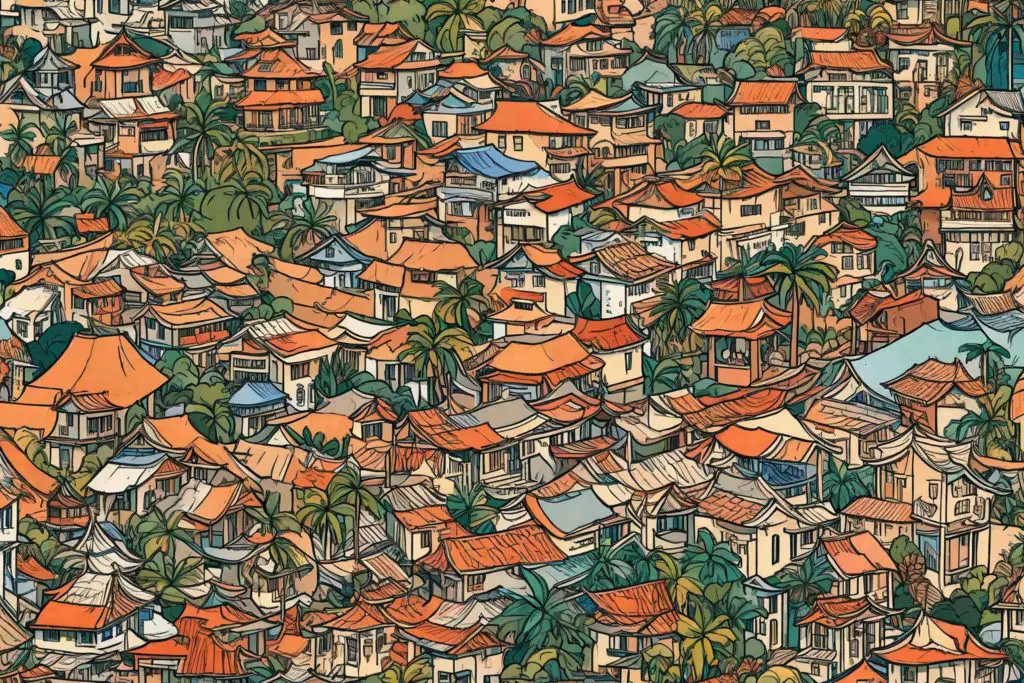Do you ever wonder how Philippine media shapes your sense of nationalism and patriotism?
From news reporting to entertainment programs, media has a powerful influence on public opinion and the way we perceive our national heroes and icons.
With the rise of social media, online nationalism has become more prevalent than ever before.
In this article, we will explore the role of Philippine media in shaping your sense of belonging to the nation and the impact it has on your patriotism.
Historical Context: The Role of Media in Shaping National Identity
As you explore the historical context, you’ll see how media has played a significant role in shaping national identity.
In the Philippines, media has been instrumental in educating the masses and instilling a sense of patriotism. Through various platforms such as newspapers, radio, and television, the media has provided valuable information and knowledge to the people, contributing to their education.
Additionally, media has been used as a tool for political propaganda, shaping public opinion and influencing the beliefs and values of the nation. Whether through news articles, political advertisements, or even social media campaigns, the media has the power to sway public perception and shape the collective identity of a nation.
It’s through these roles that media has been able to foster a sense of belonging and unity among the Filipino people.
Media Portrayal of National Heroes and Icons
You can observe how media not only highlights the achievements of national heroes and icons, but also perpetuates their legacy through storytelling and visual representations. The media representation of national heroes and icons holds significant cultural significance, fostering a sense of belonging and pride among the Filipino people.
Here are four ways in which media portrays these national heroes and icons:
- Biographical Films: Media often produces films that depict the lives and struggles of national heroes, allowing the audience to connect with their stories on a deeper level.
- Television Series: Through television series, media brings national heroes to life, making them relatable and inspiring role models for the younger generation.
- Visual Art: Media showcases national heroes and icons through paintings, sculptures, and other visual art forms, further immortalizing their contributions to the nation.
- News Features: Media regularly features stories about national heroes and icons, highlighting their accomplishments and reminding the public of their enduring legacy.
Through these diverse mediums, media plays a crucial role in preserving and promoting the rich history and cultural heritage of the Philippines.
News Reporting and Its Impact on Public Opinion
The news reporting in Philippine media has a significant impact on shaping public opinion. As a member of society, you rely on news outlets to provide you with accurate and unbiased information.
However, it’s crucial to be aware of media bias and political propaganda that can influence the way you perceive certain issues. Media bias occurs when news organizations present information in a way that aligns with their own agenda or political leanings. This can lead to a skewed representation of events, ultimately shaping your opinion in a particular direction.
Additionally, political propaganda aims to manipulate public opinion by disseminating information that supports a specific political ideology or agenda.
It’s important to critically analyze news sources and seek out diverse perspectives to ensure a well-rounded understanding of current events. By doing so, you can make informed decisions and contribute to a more inclusive and democratic society.
Entertainment Programs and Their Influence on Patriotism
Are you aware of how entertainment programs in Philippine media can shape your sense of patriotism? These programs have a significant influence on the youth and their perception of patriotism. Here is how entertainment programs impact patriotism:
- Storylines: Entertainment programs often feature patriotic narratives that instill a sense of pride and love for the country.
- Characters: Patriotic characters in these programs serve as role models for the youth, inspiring them to be proud of their heritage.
- Cultural representation: Entertainment programs that showcase the diverse cultures and traditions of the Philippines promote a sense of unity and national pride.
- Media ratings: The popularity and success of patriotic-themed entertainment programs can create a ripple effect, encouraging the production of more content that promotes patriotism.
Social Media and the Rise of Online Nationalism
Through the widespread use of social media platforms, you actively contribute to the rise of online nationalism in the Philippines.
Online activism has become a powerful tool for expressing your nationalistic sentiments and advocating for causes that promote the welfare of the nation.
Social media allows you to connect with like-minded individuals who share your love for the country, creating echo chambers where your nationalist views are reinforced.
These echo chambers provide a sense of belonging and validation, strengthening your dedication to the nation and inspiring you to take action.
With the click of a button, you can share patriotic content, engage in discussions about national issues, and mobilize others to support your cause.
Social media has empowered you to become an agent of change, shaping the narrative of nationalism in the digital age.
Conclusion
In conclusion, Philippine media plays a vital role in shaping nationalism and patriotism.
Through their portrayal of national heroes and icons, news reporting, and entertainment programs, media influences public opinion and cultivates a sense of patriotism among the people.
Furthermore, the rise of online nationalism through social media platforms has further amplified the impact of media on national identity.
It’s important for media to continue promoting a strong sense of nationalism and patriotism to foster unity and pride among Filipinos.
